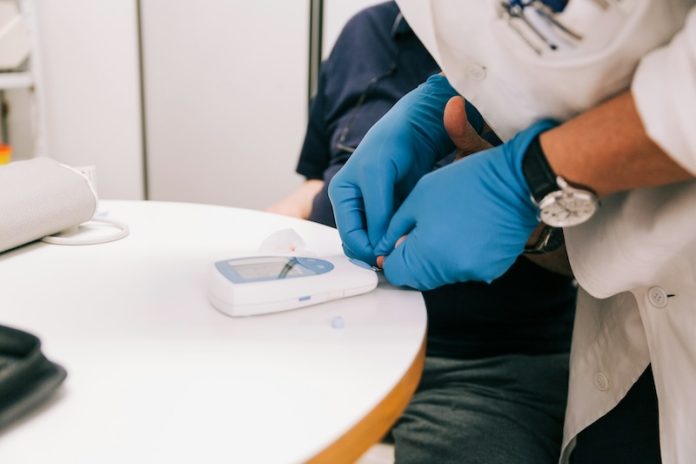
Diabetes is a chronic condition characterized by high blood sugar levels, which can lead to serious health complications if left uncontrolled.
Over the years, significant advancements have been made in diabetes medication and technology, offering new treatment options and improved management strategies for individuals living with the condition.
Let’s explore the latest innovations backed by research evidence that are transforming diabetes care.
One of the most notable innovations in diabetes medication is the development of incretin-based therapies, including glucagon-like peptide-1 receptor agonists (GLP-1 RAs) and dipeptidyl peptidase-4 (DPP-4) inhibitors.
These medications work by mimicking the action of incretin hormones, which stimulate insulin secretion and inhibit glucagon release, leading to better blood sugar control.
Research has shown that GLP-1 RAs can lower blood sugar levels, reduce body weight, and decrease the risk of cardiovascular events in individuals with type 2 diabetes.
A meta-analysis published in the journal Diabetes, Obesity & Metabolism found that GLP-1 RAs were associated with significant reductions in hemoglobin A1c (a marker of long-term blood sugar control) and body weight compared to other antidiabetic medications.
Furthermore, sodium-glucose cotransporter-2 (SGLT-2) inhibitors represent another breakthrough in diabetes treatment.
These medications work by blocking the reabsorption of glucose in the kidneys, leading to increased urinary glucose excretion and lower blood sugar levels.
SGLT-2 inhibitors have been shown to improve glycemic control, reduce body weight, and lower the risk of cardiovascular events and kidney disease progression in individuals with type 2 diabetes.
A systematic review and meta-analysis published in the journal Diabetes Therapy concluded that SGLT-2 inhibitors were effective for lowering hemoglobin A1c, body weight, and blood pressure in patients with type 2 diabetes.
In addition to medication innovations, technological advancements have revolutionized diabetes management, offering new tools and devices to help individuals monitor their blood sugar levels and make informed decisions about their treatment.
Continuous glucose monitoring (CGM) systems, for example, provide real-time glucose readings throughout the day, allowing individuals to track their blood sugar trends and make adjustments to their medication, diet, and lifestyle as needed.
Research has shown that CGM use can improve glycemic control, reduce the risk of hypoglycemia (low blood sugar), and enhance quality of life in individuals with diabetes.
A meta-analysis published in the journal Diabetes Care found that CGM use was associated with significant reductions in hemoglobin A1c and time spent in hypoglycemia compared to traditional self-monitoring of blood glucose (SMBG) methods.
Furthermore, the development of closed-loop insulin delivery systems, also known as artificial pancreas systems, represents a major advancement in diabetes technology.
These systems combine CGM technology with insulin pumps and sophisticated algorithms to automatically adjust insulin delivery based on real-time glucose readings, mimicking the function of a healthy pancreas.
Clinical trials have demonstrated that closed-loop systems can improve glycemic control, reduce the risk of hypoglycemia, and enhance quality of life in individuals with type 1 diabetes.
A systematic review and meta-analysis published in the journal Diabetes Care concluded that closed-loop systems were associated with significant improvements in time spent in target glucose range and reductions in time spent in hypoglycemia compared to conventional insulin therapy.
In summary, innovations in diabetes medication and technology have transformed the landscape of diabetes care, offering new treatment options and improved management strategies for individuals living with the condition.
Incretin-based therapies, SGLT-2 inhibitors, CGM systems, and closed-loop insulin delivery systems represent significant advancements that have the potential to revolutionize diabetes management and improve outcomes for individuals with type 1 and type 2 diabetes alike.
With continued research and development, the future of diabetes care looks promising, offering hope for better health and well-being for millions of people worldwide.
If you care about diabetes, please read studies that pomace olive oil could help lower blood cholesterol, and honey could help control blood sugar.
For more information about health, please see recent studies that blueberries strongly benefit people with metabolic syndrome, and results showing eggs in a plant-based diet may benefit people with type 2 diabetes.
Copyright © 2024 Knowridge Science Report. All rights reserved.


